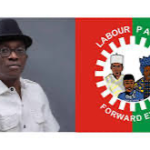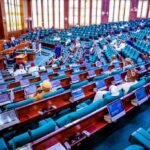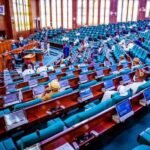
In a move that has now raised eyebrows, the Federal Government has signed a Memorandum of Understanding (MoU) with an obscure British company, MPH Rail Development (UK) Limited, for the development of a major rail project on a public-private partnership basis.
The MoU, executed on March 13, 2024, by the Minister of Transportation, Saidu Alkali, on behalf of the Federal Ministry of Transportation, enables Messrs MPH Rail Development (UK) Limited to carry out the design, construction, commissioning, operation, and transfer of the Port Harcourt–Enugu–Calabar–Abuja Standard Gauge Rail Line.
In a statement published on the Ministry’s website, Olujimi Oyetomi, the Director of Press and Public Relations, stated, “As part of the initiative to consolidate the ongoing railway modernization projects consistent with the Renewed Hope Agenda of Presidential Bola Ahmed Tinubu’s Administration, the Minister of Transportation, Senator Said Ahmed Alkali has executed a Memorandum of Understanding (MoU) on behalf of the Federal Ministry of Transportation with Messrs MPH Rail Development (UK) Limited to enable the Company carry out the design, construction, commissioning, operation and transfer of the PortHarcourt–Enugu–Calabar–Abuja Standard Gauge Rail Line on Public – Private Partnership basis.”
While the announcement of the MoU has generated excitement among Nigerians eager for infrastructure development, concerns have also been raised about the relatively unknown British company awarded the project.
Investigations have revealed that Messrs MPH Rail Development (UK) Limited, previously known as Mordecai JB Limited, was incorporated on September 26, 2019, with Andrew Jason as the sole director and shareholder. Initially, the company offered security guarding services, corporate cleaning, training, and security consultancy solutions across London and the South, with no apparent experience in rail or transportation.
It was not until 2021 that the company changed its name to MPH Rail Development Limited (UK) and added David Neil Smith as a director. At the time, the company’s entire shareholder funds amounted to a mere 100 pounds, raising questions about its financial capacity to undertake such a massive project.
Interestingly, Andrew Jason was part of the 11-member Technical Committee on Foreign Direct Investments (FDI) for Akwa Ibom State when the company’s name change occurred, fuelling speculation about potential conflicts of interest.
Since then, MPH Rail Development Limited (UK) has operated as a holding company, with its account listed as dormant and only raising its share value to 1000 pounds in October 2023. It is believed that the company had been eyeing and lobbying for the Nigerian project for some time, as evidenced by the appointment of Dacosta Rotimi Osinowo and former Speaker of the Lagos State House of Assembly, Adeyemi Sabitun Ikuforiji, as directors in October 2023.
In January 2024, the company added two more directors, Mudashiru Oriyomi Gbadamosi and Olubode Sayeed Osinowo, none of whom are known to have previous experience handling projects of this magnitude.
The lack of transparency surrounding the selection process and the company’s questionable track record have raised concerns among Nigerians, especially in light of the country’s recent victory in the P&ID scam case.
Social media platforms have been flooded with discussions questioning the government’s decision to entrust such a significant infrastructure project to an organization with limited resources and no proven expertise in the rail sector.
https://x.com/TaxDoctorNG/status/1768722540254597369?s=20
As the controversy swirls, the Ministry of Transportation has yet to address the concerns raised or provide further details on the selection process and due diligence measures undertaken.
The Port Harcourt–Enugu–Calabar–Abuja Standard Gauge Rail Line is a critical infrastructure project that aims to enhance connectivity and boost economic growth in the region. Its successful completion and operation could significantly impact the lives of millions of Nigerians, underscoring the importance of ensuring transparency throughout the project’s lifecycle.






